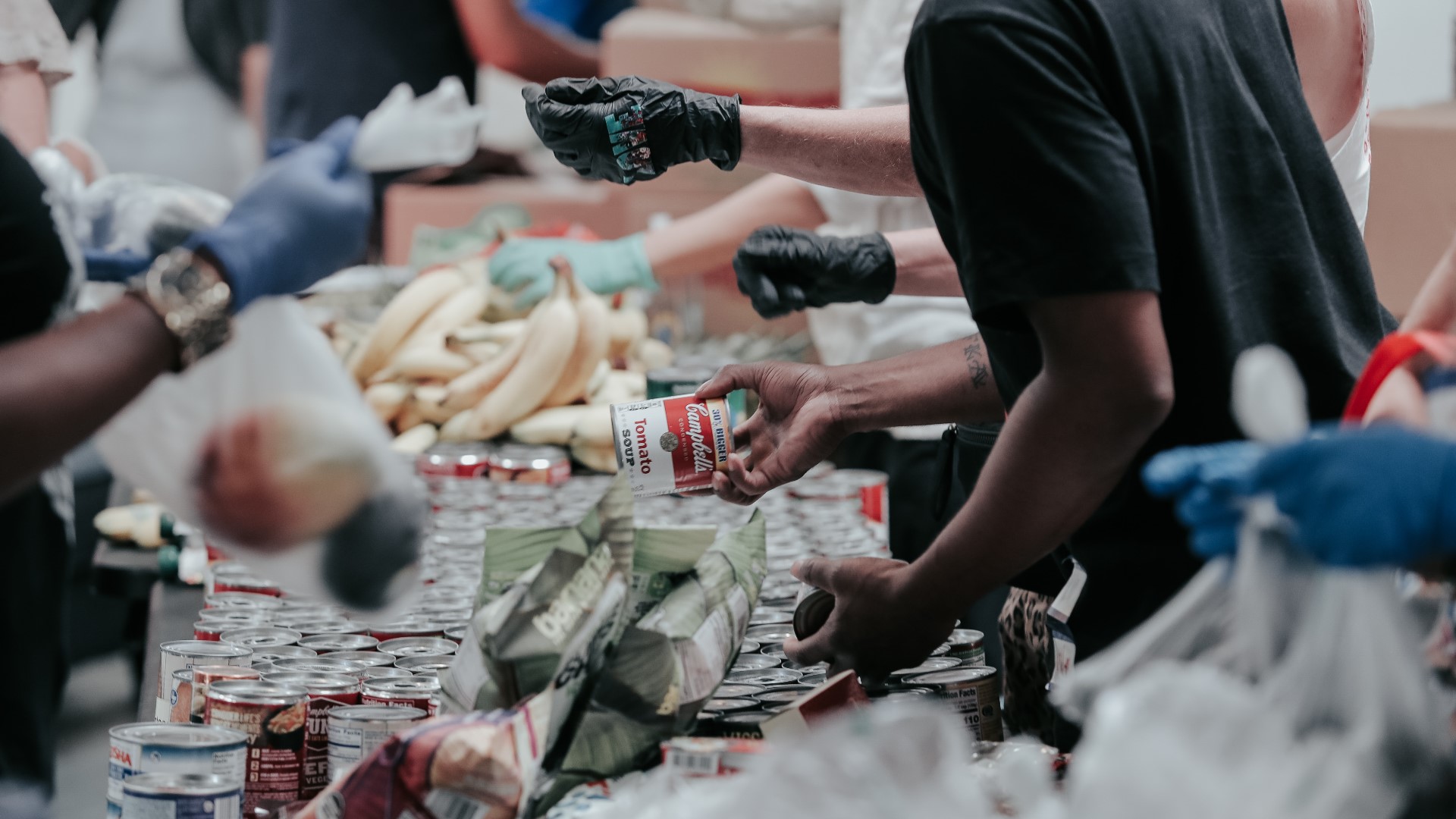DES MOINES, Iowa — Food insecurity is a growing issue in the Des Moines metro, and something local and statewide organizations are teaming up to tackle.
A community-wide food insecurity reduction plan was unveiled Tuesday, led by the United Way of Central Iowa, DMARC and Food Bank of Iowa.
“These numbers are bonkers. If we’re not looking at this as a crisis or an emergency, we’re not viewing it the right way," DMARC CEO Matt Unger said.
Almost one-quarter of Des Moines residents have visited one of DMARC's 14 pantries in 2023, according to Unger. That’s a jump from about one-fifth of Des Moines residents in 2022.
United Way of Central Iowa also noted the record-breaking food pantry use. DMARC pantries and the Urbandale Food Pantry have seen the numbers rise from the frontlines.
“Pre-pandemic we would welcome an average of 1,200 families to the pantry per month and now we’re welcoming over 1,800 families to the pantry per month," Patty Sneddon-Kisting with the Urbandale Food Pantry said.
She emphasized that a variety of situations bring people to the Urbandale Food Pantry from losing a job to medical bills.
"During an entire year, an individual only visits the Urbandale Food Pantry three times a year. That is not excessive. That is not every month. That is something that happened in my life that I need some additional support," she said.
This issue isn't specific to urban centers.
“Unfortunately one of the things I hear most frequently is ‘Well yeah but that’s just happening in Des Moines.’ And actually it’s usually worse outside of Des Moines because there’s less resources, things are fewer and farther between, and there’s a lot more barriers," Unger said.
Organizations broke down the basics on how they plan to approach food insecurity.
“The answer to food insecurity isn’t giving people food. It’s solving the reasons they need it," Unger said.
Strategies discussed include data-driven policy solutions, making services easier to navigate, advocating for policies that address what’s causing food insecurity, and more.
“My hope is, in the future, there is a future where no Iowan goes to bed hungry," Food Bank of Iowa President & CEO Michelle Book said.

